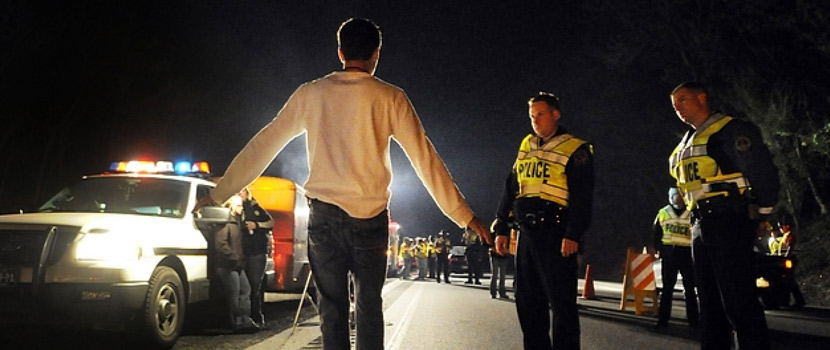
DUI Lawyer Niagara Falls
DUI Lawyer Niagara Falls: Impaired driving and related charges
Driving Prohibitions
Driving prohibitions can arise in the following circumstances
With regard to non-criminal driving prohibitions, the standard of proof is a balance of probabilities, whereas for the crown to secure a conviction for impaired driving on a criminal standard, the burden is a much higher one – balance of probabilities -.
Hiring the right lawyer for an impaired driving charge
Impaired driving charges are often beatable. Short of beating an impaired, as a second-best case scenario, a good lawyer can often convince the crown attorney to allow you to plead to a lesser included offence (public nuisance for example) to then have the impaired charge dropped, allowing you to serve a term of probation, followed but a discharge, which is a sanction that is unavailable for impaired driving charge.
Hiring a good lawyer can mean the difference between avoiding a criminal record or not. The following are some considerations for hiring the best lawyer for your circumstances.
Reasonable and Probable Grounds
The police must have reasonable and probable grounds at every stage of an arrest and detention. The reasonable and probable grounds are normally in the form of notes with regard to indicia of impairment. Anyone who is charged with impaired driving in Canada is entitled to broad disclosure, including disclosure of the police notes that were taken during the arrest. Good lawyers can sometimes demonstrate that the police acted unreasonably or without reasonable and probable grounds by demonstrating that there were insufficient indicia of impairment reflected in the police notes. Indicia of impairment can be the police stating that they saw bloodshot or watery eyes, or smelled alcohol on the breath of the accused for example.
Impaired by alcohol and/or drugs
DUI Lawyer Niagara Falls: In Canada, the Criminal Code prohibits operation of a motor vehicle while impaired by drugs, alcohol or a combination of the two. Normally, the police test for alcohol by taking a breath sample. If the driver is hospitalized and is suspected of being impaired by alcohol, the police can secure blood samples from the hospital to prove impairment. Normally, from the police station, if the police suspect that someone is impaired by drug, they test for drugs through a urine sample.
Beating an impaired driving charge
We often encounter lay people that believe that impaired driving cases are difficult to beat. Impaired driving cases are very often beatable. In fact, you should never plead guilty to an impaired without first having a lawyer review and discuss your disclosure.
The crown has the duty to prove that the instruments that were used to measure an accused person’s blood alcohol concentration (BAC) were properly calibrated and administered by a properly certified data master technician. If your lawyer can create reasonable doubt with regard to the instrument, this could result in an acquittal.
Above, we explained reasonable and probable grounds. If your lawyer demonstrates that the police did not have reasonable and probable grounds at every stage of your arrest and detention, they can make an application pursuant to section 8 and/or 9 of the Charter of Rights and Freedoms. If successful with this application, we can either convince the crown to withdraw the charges or we can convince the judge to rule the evidence inadmissible, ultimately leading to an acquittal.
Everyone charged with summary offences in Canada, including impaired driving charges, is entitled to a trial without an unreasonable trial delay. For this reason, if the crown and court take too long to prosecute an accused, a lawyer can apply for a withdraw on the basis of unreasonable delay, as a stand-alone ground or in combination with other grounds for a withdraw.
The crown has the duty to prove all of the essential elements of an offence beyond a reasonable doubt. Most importantly, the crown has to prove that an accused was impaired while theywere operating a vehicle. There are many ways that reasonable doubt can arise in the mind of a trier of fact in impaired driving cases. As just one example, sometimes an accused is arrested after the alleged driving has ended. In these circumstances, if the accused later argues that he became impaired after driving, this may rebut the statutory presumption that the accused was impaired while they were driving.
Sanctions for impaired driving charges
DUI Lawyer Niagara Falls: Most criminal offences in the Criminal Code of Canada lead to a conditional discharge on a first offence. A conditional discharge means you go through a term of probation and then the accused is left without a criminal record. Because impaired driving matters have mandatory minimums in the Criminal Code of Canada, a conviction for impaired driving caries a minimum driving prohibition and fine and most importantly, a criminal record. However, if your lawyer convinces the crown attorney to allow you to plead to a lesser included offence, public nuisance for example, there are no mandatory minimums, which means you could be left without a criminal record for a plea deal.
If someone is convicted of impaired driving or a refusal for a second time, the minimum punishment for a second offence pursuant to the Criminal Code of Canada is 30 days in jail. The best-case scenario if you are charged with impaired for a second time is that we get a withdraw of your charge on the basis that there is no reasonable prospect of conviction. The second best-case scenario is that we can convince the crown to allow you to plead to as lesser included offence as described above. If neither of these arrangements are achieved, we then look to ask the crown to proceed without relying on the notice to seek increased penalty. If the crown does not file this notice with the court, the court would then sentence an accused as if it was their first time being convicted of an impaired charge.
There are a few reasons that a crown attorney may decide not to rely on the notice to seek increased penalty. One common reason is that the previous impaired was from a long time ago. If the previous impaired was more than 20 years ago, most crown attorneys will not rely on the notice to seek increased penalty. If the previous impaired is from more than 10 years ago but less than 20, a defence attorney may still be able to convince the crown to proceed without the notice to seek increased penalty.
If aggravating factors are present with regard to an impaired driving conviction, this can increase your sanction over and above the minimums. For example, if excessive speed or dangerous driving was involved in the factual matrix of a conviction, this may warrant an increased fine and driving prohibition. More serious aggravating factors, including an accident, injuries or even death, this can result in jail time, up to penitentiary incarceration.
Conclusion
If you are charged with impaired driving, impaired while in care and control of a motor vehicle or refusal of a breathalyzer, you should take this very seriously. If you have a clean record, at a minimum, this is on the line. The good news is there are many ways to avoid a criminal record as described above. It is important to hire a good, experienced lawyer that can help you achieve the best result possible in your circumstances.
Call us today for more information. 1-888-402-9555.
Related Cases
1100
DUI cases won
300
DWI cases
110
Driving infractions

